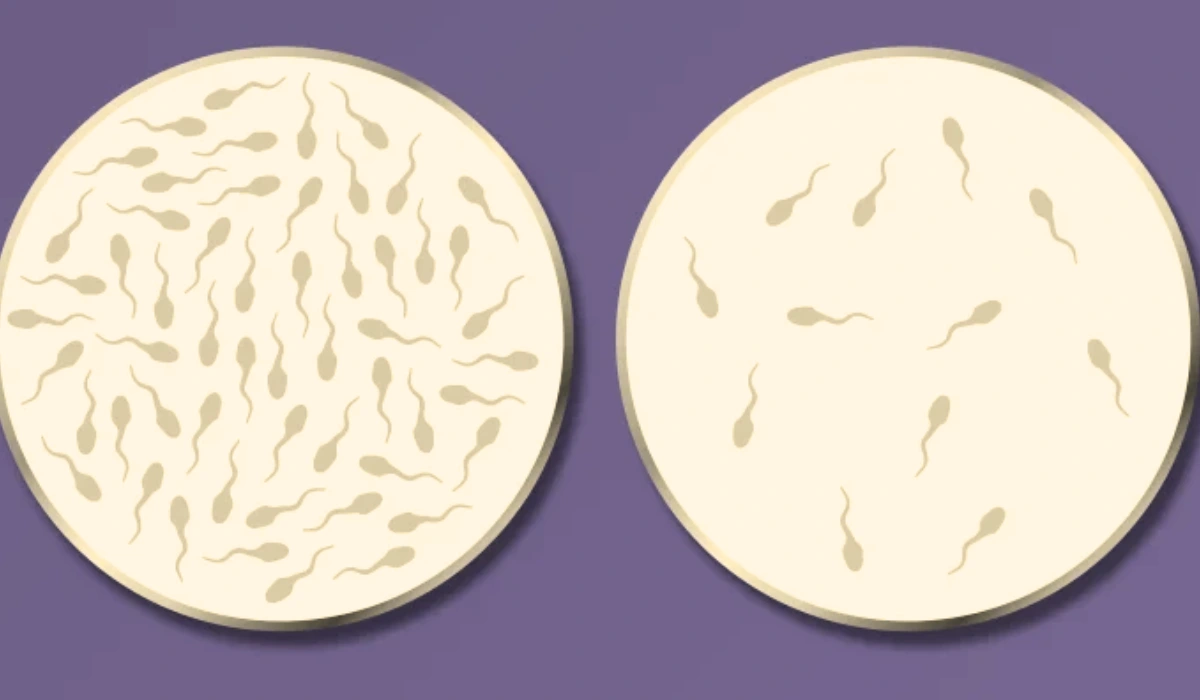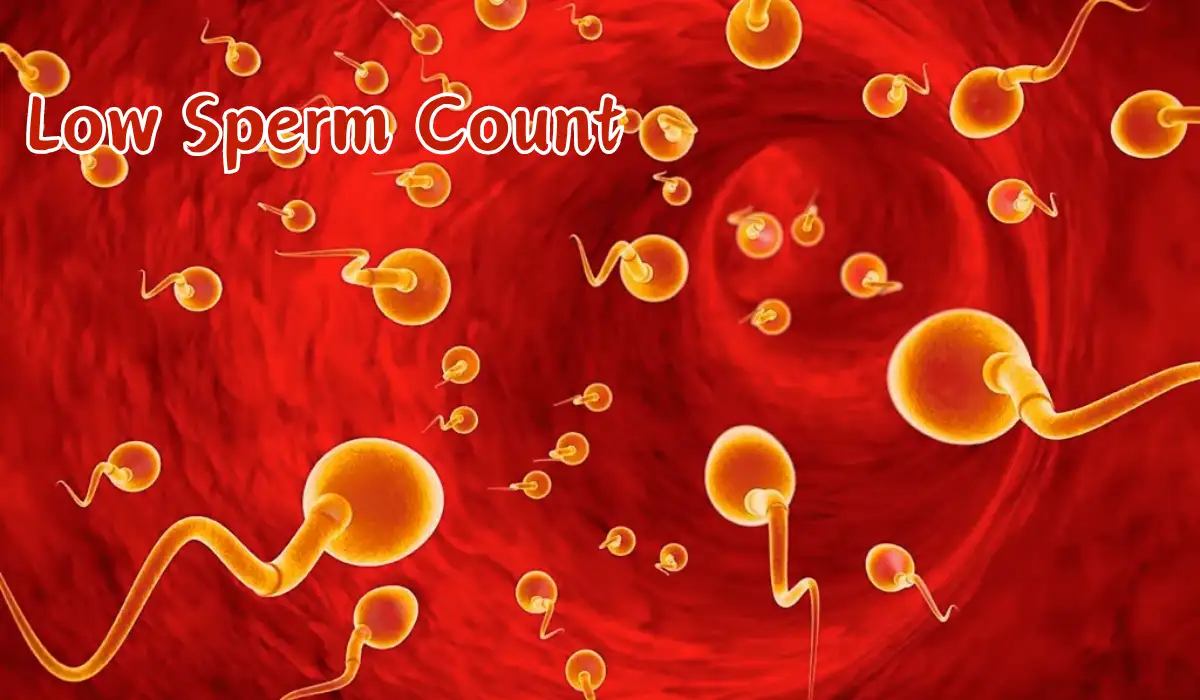The white fluid ejaculated during an orgasm is called semen. It contains sperm, enzymes, minerals, and proteins. Sperm is the male reproductive cell and the primary constituent of semen. Did you know that a healthy individual will have 50 million to 200 million sperm per milliliter of semen in an ejaculation? If your sperm count is below 39 million in a single ejaculation, you have a low sperm count. The condition of having a low count is called oligospermia. It is difficult to get pregnant with a low count. If there are no measurable sperm in your semen, the condition is called zoospermia. Both of these conditions affect the male fertility.
Symptoms of Low Sperm Count
Can’t get pregnant:
The first and foremost symptom of low sperm count is the inability to conceive a child. Failure to get pregnant after having multiple sessions of intercourse can be due to low sperm count. Also, if you lose interest in sex or have a low libido for a long period, get your count checked.

Low sex drive:
If there are changes in your sexual function or if you fail to have an erection, it can be a sign of low sperm count. Difficulty in maintaining an erection is called erectile dysfunction.
Pain in the groin:
Pain in the testicles, scrotum, or below your abdomen can indicate a low sperm count. This happens if the vessels or tracts that lead the sperm out of the testicles to your penis could be blocked. It could also arise due to infections. If your testicles swell up or if there are lumps in the testicles, get it checked. Testicular torsion could affect long-term sperm motility. But, testicular torsion is highly painful and needs emergency attention.
Low facial hair:
The hormones secreted from the testis directly relate to facial and body hair in men. If you notice hair loss or hairless patches in your body, it is a sign of low sperm count.
Shrinking of the scrotum:
If the hormonal levels vary, the brain will shrink up the scrotum, lowering the secretions from the testis.
What Causes Low Sperm Count?
Three general factors that affect the sperm count in a healthy male are:
Medical:
STDs:
Sexually transmitted diseases cause infections and primarily affect the reproductive system. Infections due to this can block or in some cases, destroy the tissues of the reproductive system. Diseases like chlamydia and gonorrhea can permanently damage the reproductive system in men and women. The best way not to contract an STD is to have safe sex. Condoms are the most effective method for preventing the transmission of sexually transmitted diseases (STDs).
Hormonal Disorders:
Testosterone is a sex hormone that maintains the libido in males. It also helps in the production of sperm cells. Testosterone is secreted by the male gonads, the testes. An imbalance in the levels of testosterone can cause sperm count to drastically decrease. Testosterone is also regulated by another hormone which is secreted by the pituitary gland. A pea-sized gland situated in our brain. The pituitary gland secretes hormones that control and maintain the secretions from the testes. Any imbalance in the secretions from the pituitary gland can also cause low sperm count. Hyperthyroidism can also cause low sperm count.
Varicocele:
The Scrotum covers and protects the testes. It is filled with blood vessels that supply nutrients to the testes for its functioning. If one of the veins in the scrotum swells up, it cuts off the blood flow from the testis. Varicocele is similar to varicose veins as seen on the legs. Varicocele can lower the sperm count, shrink the scrotum, or even in severe cases, cause male infertility.
UTI:
A urinary tract infection can lower your sperm count. Bacterial infection from the urinary tract can enter into the testes and halt the production of sperm.
Surgeries in the reproductive system can affect the sperm count.
Environmental:
- The ideal temperature for the sperm cells is lower than that of the human body temperature. This is the reason why testes are situated outside the body with the help of the scrotal sac. When the outside temperature decreases, the scrotum shrinks for the testes to get more heat from the body. Long-term exposure to high temperatures can cause low sperm count and can affect sperm motility and virility.
- Exposure to chemicals, X-rays, and other radiations.
Lifestyle:
- Diet: Skipping meals, eating junk food, and overeating can all cause low sperm count. Food rich in calcium and protein can help in the production of healthy sperm cells.
- Consumption of alcohol: It can affect the functioning of the male reproductive system. Studies have shown that the semen quality and sperm count in an alcoholic is much worse when compared to a normal person. Alcohol addiction may lead to erectile dysfunction.
- Drugs: Marijuana will lower the sperm count by reducing the production of sperm.
- Steroids: Bodybuilders often use steroid injections for faster gains. Pre-workout drinks, energy drinks, food supplements, and testosterone tablets are anabolic steroids, which can reduce the quality of sperm.
Does Masturbation affect sperm count?
Masturbation does not affect sperm motility or sperm count. Studies have found out that, masturbation helps in reducing stress and improves brain activity by releasing dopamine.
Treatment
- Surgery can help cure blockages in the blood vessels and ducts in the reproductive system. Varicoceles can be fully cured by surgery. The path of sperm movement through the duct can be blocked by infections and scar tissues. Which can also be removed by surgery. Cancer in the testis and prostate can also be treated by chemotherapy or surgery.
- Urinary tract infections and other infections in the reproductive system can be treated by medications. Sudden intervention should be taken in such cases to avoid permanently halting sperm production.
- Giving up on smoking, alcohol consumption, drug addiction, and other chemical addictions.
- Counseling sessions can help to solve problems such as erectile dysfunction and lower libido.
- Methods like in-vitro fertilization and intra-uterine insemination can assist in conceiving.
Read More: Everything You Need To Know About The DASH Diet
Conclusion
If you notice any of the symptoms mentioned above, consult a doctor and test your sperm count. Simple changes in your lifestyle can sometimes help you to regain a normal count. If not, don’t be dejected, there are modern technologies and methods to assist you in getting pregnant. It will take a bit longer than the usual method. Leading a healthy lifestyle and having safe and protected sex can help you to maintain a healthy count. Low sperm count should be treated well as it also could be a symptom of some other diseases.

